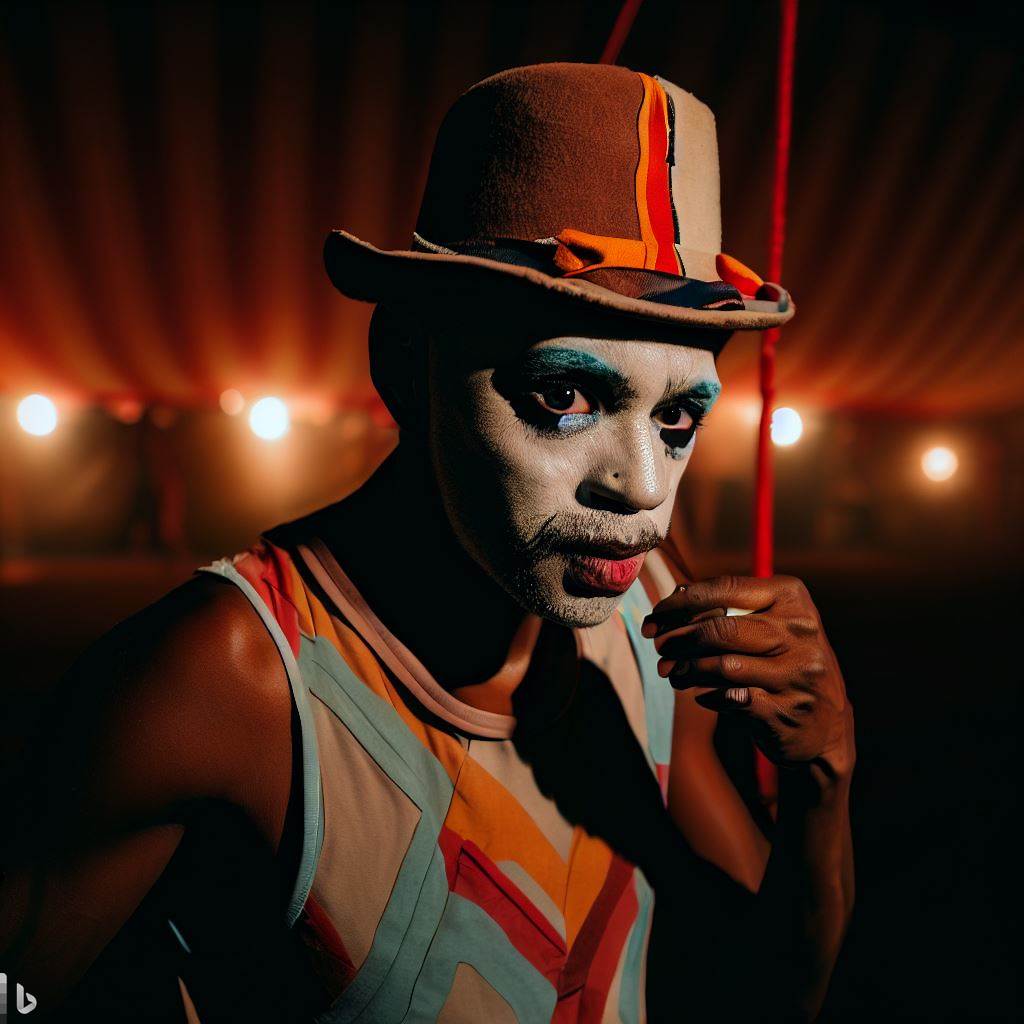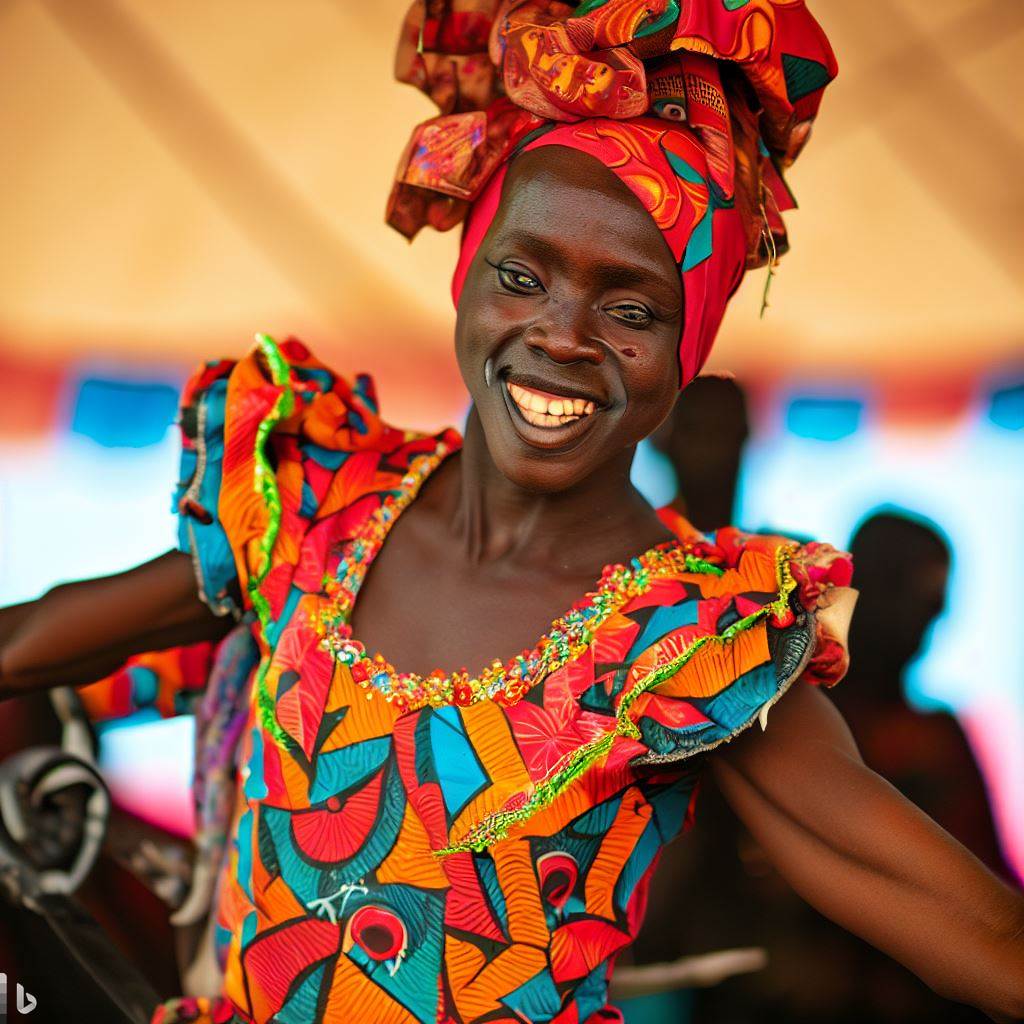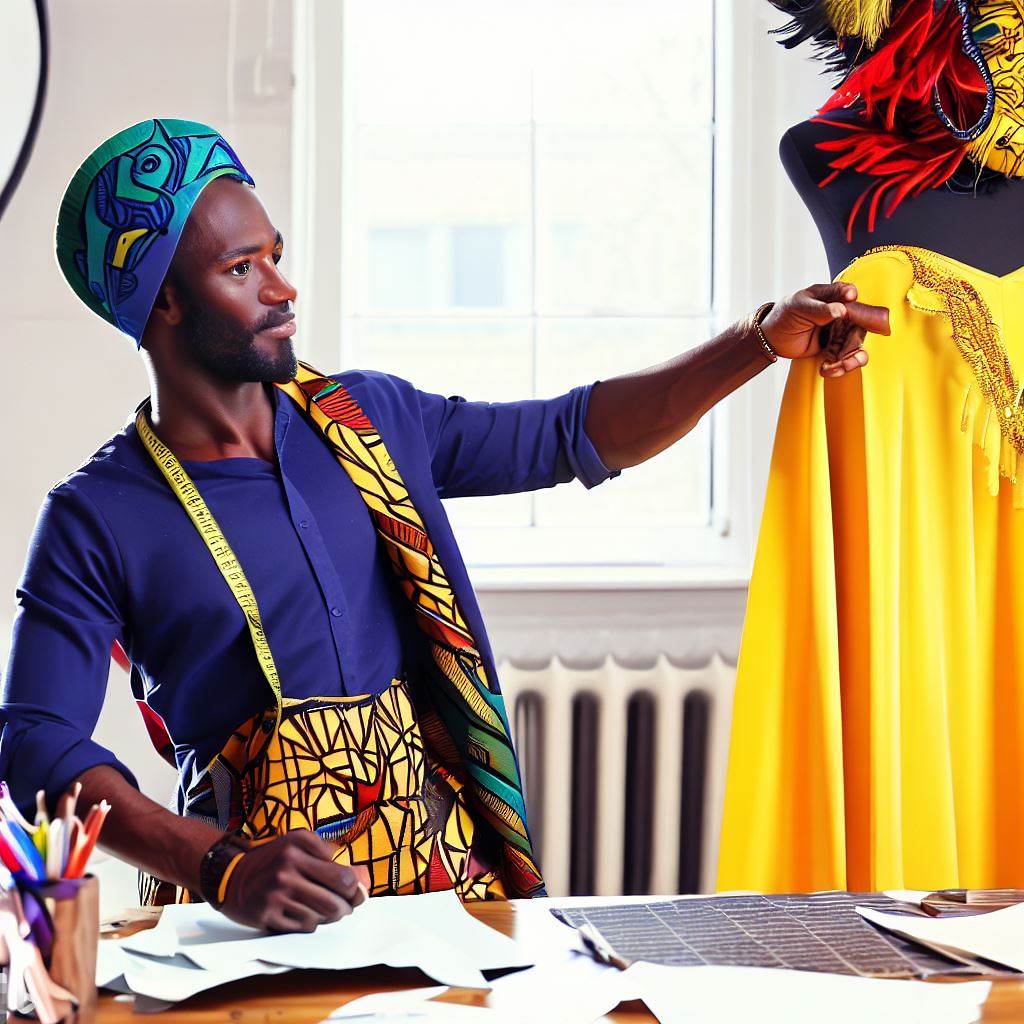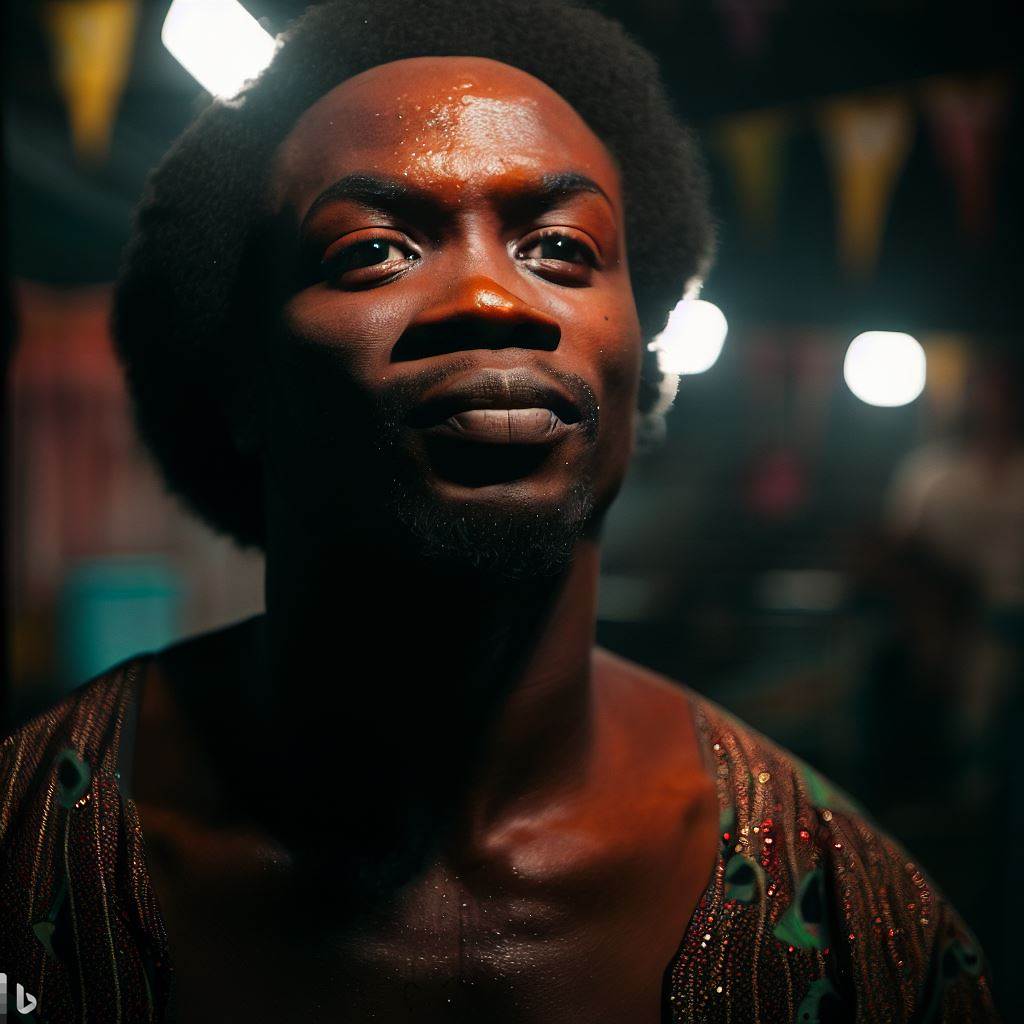Introduction
Circus life in Nigeria offers a unique glimpse into a world filled with vibrant performances, acrobatics, and daring stunts.
However, behind the glitter and applause, many hidden challenges exist that often go unnoticed.
These challenges can take a toll on the physical and mental well-being of circus performers, casting a shadow over their glamorous profession.
A. Explanation of what circus life in Nigeria entails
Circus life in Nigeria revolves around a diverse range of skills and performances, including trapeze acts, fire-breathing, juggling, and contortion among others.
The circus acts are usually performed in a vibrant atmosphere, with colorful costumes and lively music, captivating audiences of all ages.
Performers spend countless hours perfecting their acts, showcasing their extraordinary talents to enthralled spectators.
B. The hidden challenges that are often overlooked
However, amidst the awe-inspiring performances, circus life in Nigeria presents a set of hidden challenges.
First and foremost, performers face immense physical strain and injuries due to the demanding nature of their acts.
From broken bones to muscle sprains, the toll on their bodies is immense and often goes unnoticed.
Additionally, the lack of proper training facilities and resources in Nigeria adds to the challenges faced by circus performers.
Limited access to equipment, safety precautions, and training opportunities significantly impact their ability to refine their skills and perform at their best.
Furthermore, the unstable income and financial difficulties experienced by many circus performers in Nigeria cannot be overlooked.
Despite their extraordinary talents, performers often struggle to make ends meet, leading to financial instability and a constant state of uncertainty.
Beyond the physical and financial challenges, the emotional and mental well-being of circus performers is also at stake.
The pressure to constantly deliver exceptional performances, coupled with the lack of support and recognition, takes a toll on their mental health.
While circus life in Nigeria may appear glamorous, it is essential to acknowledge and address the hidden challenges that performers face.
By doing so, we can support and appreciate the dedication and resilience of these talented individuals, ensuring a thriving circus community in Nigeria.
Historical Background of Circus in Nigeria
Circus has a long history in Nigeria, dating back to the colonial era.
The first circus in Nigeria was established by a British circus troupe in the late 19th century.
Circus performances attracted large crowds and quickly gained popularity among Nigerians.
A. History of how circus has evolved in Nigeria
In the early days, circus shows were mainly organized by foreign troupes who traveled to Nigeria.
These shows featured acrobatics, juggling, tightrope walking, and animal acts, captivating the audience.
Despite the colonial influence, Nigerians embraced the circus and started forming their own troupes.
The 1950s witnessed a surge in indigenous circuses, often made up of local performers.
These circuses showcased Nigerian traditions and incorporated African music, dance, and storytelling into their acts.
Circus became an important part of Nigerian culture, entertaining people and preserving their heritage.
Circus performances were not limited to urban areas; they also reached rural communities across Nigeria.
Over the years, Nigerian circuses faced numerous challenges, including lack of government support and limited funding.
However, the resilience and passion of circus performers kept this art form alive and thriving.
B. Highlighting the Cultural Significance of Circus in Nigeria
Circus in Nigeria plays a vital role in promoting cultural diversity and national unity.
It showcases the rich and diverse cultural heritage of Nigeria, fostering a sense of pride among the population.
Circus acts often incorporate traditional dances, costumes, and music, giving spectators a taste of Nigerian culture.
For young performers, circus offers a platform to express their creativity and connect with their roots.
Many Nigerian circuses also prioritize community outreach, using their performances to educate and inspire.
Through workshops and training programs, they empower aspiring artists, promoting talent development.
Circus creates employment opportunities, particularly for artists from disadvantaged backgrounds.
By employing local performers and supporting local businesses, circus contributes to the Nigerian economy.
Moreover, circus performances provide entertainment and joy, offering an escapism from daily challenges
The laughter and applause from the audience serve as a reminder of the resilience and spirit of Nigerians.
The historical background of circus in Nigeria reveals its evolution from a foreign concept to a beloved cultural tradition.
Circus not only entertains but also preserves Nigerian heritage and promotes cultural diversity. Despite facing challenges, circus continues to thrive, bringing happiness and unity to communities across the country.
Lifestyle Challenges Faced by Circus Performers in Nigeria
Circus life in Nigeria is fraught with numerous challenges that are often hidden from the public eye.
Beyond the glamour and spectacle of the performances, circus performers face several obstacles that significantly impact their lifestyle.
From financial struggles and job insecurity to limited access to healthcare and social security, these individuals endure a challenging and uncertain way of life.
A. Financial Struggles due to Low Income
One of the prominent challenges faced by circus performers in Nigeria is the constant battle with financial struggles.
Despite their incredible skills and captivating performances, these individuals often earn a low income.
The lack of recognition and inadequate investment in the circus industry contribute to their financial difficulties, making it challenging to make ends meet.
Moreover, the inconsistent nature of their income exacerbates their financial woes.
Unlike salaried workers, circus performers’ income fluctuates depending on the number of shows they participate in.
This instability makes long-term financial planning and budgeting incredibly difficult, leading to a constant state of financial stress.
B. Lack of Job Security and Uncertain Future
Circus performers in Nigeria constantly grapple with a lack of job security and a highly uncertain future.
Traditional job security, such as long-term contracts or pension plans, are virtually non-existent in the circus industry.
Performers often struggle to secure regular gigs, and many have to resort to freelance work or cobble together multiple jobs to survive.
Moreover, the absence of collective bargaining power makes it challenging for circus performers to negotiate fair working conditions, wages, and benefits.
They are often at the mercy of their employers, who can easily replace them with other performers or exploit their skills without providing adequate compensation.
C. Limited Access to Healthcare and Social Security
Another hidden challenge faced by circus performers in Nigeria is their limited access to healthcare and social security benefits.
As freelance workers or self-employed individuals, they are not entitled to the same benefits as formal employees.
This lack of access to healthcare leaves them vulnerable to medical emergencies and unable to afford necessary treatments.
Furthermore, the absence of social security benefits, such as retirement plans or unemployment benefits, leaves circus performers vulnerable to financial hardships during periods of unemployment or old age.
Without a safety net, they constantly live in fear of accidents, injuries, or a decline in their physical abilities that may hinder their performance career.
The lifestyle challenges faced by circus performers in Nigeria are far from glamorous.
These individuals struggle with financial instability due to low income, grapple with job insecurity, and have limited access to healthcare and social security benefits.
Addressing these challenges requires greater recognition of the circus industry, improved investment, and supportive policies.
Improving financial prospects, job security, and benefits for circus performers enhances their lives and Nigerian circus industry.
It is essential to unveil these hidden challenges, spark conversations, and work towards creating a more sustainable and supportive environment for circus performers in Nigeria.
Physical and Mental Health Challenges
- The physical demands of circus performances often lead to frequent injuries.
- Acrobats, tightrope walkers, and other performers risk their physical well-being for the sake of entertainment.
- Despite the risks, finding proper medical care and rehabilitation centers becomes an arduous task.
- Nigeria’s healthcare infrastructure does not cater to the specific needs of circus performers.
- The lack of specialized medical facilities prolongs recovery periods and hampers performers’ overall well-being.
- Moreover, the toll of constant stress and pressure takes a significant toll on the mental health of circus performers.
- The need to maintain a flawless performance is mentally exhausting and anxiety-inducing.
- The constant fear of not meeting audience expectations leads to increased psychological distress.
- Circus performers often struggle with depression, anxiety, and other mental health challenges.
- Unfortunately, mental health support systems for these individuals are severely lacking in Nigeria.
Financial and Socioeconomic Challenges
- Many circus performers in Nigeria face financial instability due to limited job opportunities and low wages.
- The circus industry suffers from inadequate government support and sponsorship, contributing to financial struggles.
- Circus life in Nigeria often forces performers into a cycle of poverty and economic insecurity.
- The lack of financial stability leads to difficulties in accessing proper nutrition and healthcare.
- Circus performers find it challenging to maintain a decent standard of living for themselves and their families.
- Additionally, the socioeconomic stigma attached to the circus profession further exacerbates their challenges.
- The societal perception of circus performers as societal outcasts results in discrimination and limited opportunities.
- This stigma hinders their chances of accessing education, housing, and basic social services.
- Circus performers are often marginalized and excluded from mainstream society in Nigeria.
- The compounded financial and socioeconomic challenges create a vicious cycle that is challenging to break.
Cultural and Family Pressure
- Circus performers in Nigeria face unique cultural and family pressures that compound their challenges.
- Traditional expectations often clash with the non-conventional lifestyle of circus performers.
- Many families disapprove of their career choice and consider it beneath their cultural norms.
- As a result, performers often face strained relationships with their families and a lack of emotional support.
- The disapproval from their immediate social circles adds an extra layer of stress to their lives.
- Performers, forced to navigate between cultural expectations and their passion, often find themselves torn.
- The inability to fulfill familial and cultural obligations can lead to feelings of guilt and isolation.
- Maintaining a balance between family and career becomes an unending battle for circus performers.
- This conflict contributes to their overall mental and emotional well-being, affecting their performance quality.
- Breaking the cultural barriers surrounding circus life is crucial for the well-being of performers in Nigeria.
Unveiling the hidden challenges of circus life in Nigeria brings to light the physical and mental health challenges, financial and socioeconomic struggles, and cultural and family pressures faced by performers.
These challenges highlight the need for better healthcare infrastructure, financial support, and societal acceptance.
By addressing these issues, Nigeria can create a safer and more sustainable environment for circus performers, allowing them to thrive both physically and emotionally.
Read: Understanding the Role of Managers in Nigerian Art Scene
Social Stigma and Discrimination
- Circus performers are often looked down upon due to the nature of their profession.
- They face discrimination in various aspects of their lives, including finding housing and employment.
- Some people believe that circus performers are “freaks” or have questionable morals.
- There is a general misconception that circus performers are not educated or intelligent.
- These prejudices and misconceptions contribute to the social stigma surrounding circus life in Nigeria.
Instances of Discrimination Faced by Circus Performers
- Circus performers often struggle to secure housing because landlords refuse to rent to them.
- Employers frequently discriminate against circus performers by refusing to hire them due to their profession.
- They are sometimes subjected to verbal abuse and derogatory comments from strangers and even acquaintances.
- Children of circus performers may face bullying and exclusion from their peers at school.
- Discrimination also extends to healthcare, as some medical professionals treat circus performers differently or unfairly.
Addressing Prejudices and Misconceptions Surrounding Circus Life
- It is important to educate the public about the cultural significance and history of circus performance.
- Highlighting the skills and talents of circus performers can challenge misconceptions about their lack of intelligence.
- Organizations and advocacy groups can work towards creating equal opportunities for circus performers.
- Media representation that portrays circus performers in a positive light can help dispel stereotypes.
- Encouraging diversity and inclusivity in society can reduce social stigma and discrimination towards circus performers.
Additionally, attending circus performances and interacting with circus communities can provide firsthand insights into the reality of circus life and help dispel stereotypes and misconceptions.
Read: Top Nigerian Mixing Engineers and Their Iconic Works

Lack of Government Support and Infrastructure
When it comes to the world of circus in Nigeria, one cannot help but notice the glaring lack of government support and infrastructure.
This lack of attention and investment in the circus industry has posed numerous challenges and obstacles for circus performers in the country.
A. Absence of policies or initiatives to support circus performers
- The Nigerian government has failed to implement any specific policies or initiatives to support the circus industry.
- There is a lack of recognition and value given to circus performers, which further hampers their growth and development.
- Without supportive policies, circus performers struggle to receive the necessary recognition, funding, and resources they need to thrive.
- The absence of clear guidelines and regulations has also led to ambiguity and uncertainty in the industry.
B. Lack of proper venues, training facilities, and resources
- One of the major challenges faced by circus performers in Nigeria is the lack of suitable venues to showcase their talent.
- Most cities lack dedicated circus performance spaces, forcing performers to make do with makeshift arrangements.
- This not only affects the quality of their performances but also exposes them to potential safety hazards.
- Additionally, the scarcity of training facilities for aspiring circus performers inhibits their growth and skill development.
- Without access to proper training, performers find it challenging to improve their techniques and expand their repertoire.
- The lack of resources, such as equipment, costumes, and props, further restricts the possibilities for circus performers.
The circus industry in Nigeria is plagued by a lack of government support and infrastructure.
The absence of policies or initiatives to back circus performers, coupled with the scarcity of suitable venues, training facilities, and resources, creates significant challenges for those involved in the industry.
The government must acknowledge and give importance to circus arts, enacting supportive policies and investing in essential infrastructure. This will nurture Nigerian circus performers‘ growth.
Read: Emerging Trends in Sound Editing in Nigeria
Stories of Resilience and Hope
Circus life in Nigeria is not without its challenges, but amidst the difficulties, there are tales of resilience and hope that exemplify the human spirit.
A. Personal stories of circus performers who have overcome challenges
Here are a few personal stories of circus performers who have overcome the odds:
1. Abdul’s Unbreakable Spirit
Despite growing up in poverty, Abdul discovered his passion for acrobatics at a young age.
He faced numerous obstacles, including limited resources and societal pressures, but his determination and unwavering focus propelled him forward.
Today, Abdul is a renowned performer, inspiring young aspirants to never give up on their dreams.
2. Aisha’s Triumph Over Discrimination
Aisha, a talented contortionist, faced discrimination within her community due to traditional beliefs that disapproved of her chosen profession.
However, she remained resilient and continued to pursue her passion relentlessly.
Aisha’s exceptional skills eventually gained recognition, challenging societal norms and opening doors for future generations.
3. Ezekiel’s Journey from Beggar to Magician
Ezekiel had a rough start in life, often resorting to begging on the streets to survive.
But a chance encounter with a traveling magician sparked his interest in the craft. Determined to change his circumstances, Ezekiel practiced tirelessly and honed his skills.
Today, he is a celebrated magician, proving that anyone can rise above their circumstances with dedication and perseverance.
B. Instances where performers have found success despite the obstacles
While circus life in Nigeria may come with numerous challenges, there have been instances where performers have triumphantly overcome these obstacles, finding success against all odds:
1. The Inspiring Tale of Danjuma
Danjuma, a juggler from a disadvantaged background, faced constant financial struggles. But he refused to let that deter him.
By showcasing his incredible juggling skills on social media, Danjuma garnered widespread attention and admiration.
He eventually secured sponsorship opportunities and now performs on international stages, proving that talent and determination can transcend circumstances.
2. Blessing’s Aerial Feats
Blessing, a young aerialist, faced challenges in training due to the lack of proper facilities.
Undeterred, she decided to construct her own equipment using locally available materials.
Her resourcefulness paid off as her breathtaking performances caught the attention of international circus companies.
Blessing now tours the world, demonstrating that ingenuity and passion can lead to remarkable success.
3. Akin’s Dance of Victory
Akin, a skilled fire dancer, encountered opposition from his family, who believed that his chosen art form was too dangerous.
However, Akin persisted, taking safety precautions and perfecting his technique.
Over time, his mesmerizing performances earned him accolades, and he became an instructor, training a new generation of fire dancers.
Akin’s story showcases the power of perseverance and the rewards it can bring.
While the challenges of circus life in Nigeria are real and significant, these stories of resilience and success provide a glimmer of hope.
They demonstrate that with passion, determination, and a supportive community, individuals can conquer any obstacle and achieve their dreams.
Read: The Rising Importance of Mixing Engineers in Nigerian Music
Call to Action
- Support local circus organizations and performers by attending their shows and events.
- Donate to these organizations to help improve their facilities and support their artists.
- Spread the word about local circus organizations through social media and word of mouth.
- Volunteer your time and skills to assist with the operations and activities of these organisations.
- Advocate for improved conditions and better treatment of circus performers by writing to local authorities and government officials.
A. Ways to Raise Awareness and Advocate for Improved Conditions
- Host awareness campaigns and workshops to educate the public about the challenges faced by circus performers in Nigeria.
- Organize fundraising events and charity shows to raise funds for circus organizations and initiatives.
- Create and share compelling content online, such as videos, articles, and blogs, to shed light on the hidden challenges of circus life in Nigeria.
- Collaborate with local media outlets to feature stories and interviews with circus performers, highlighting their struggles and accomplishments.
- Engage in dialogues and discussions with community leaders, policymakers, and influencers to bring attention to the need for improved conditions in the circus industry.
B. How Readers Can Make a Difference
- Stay informed about the current state of circus organizations in Nigeria, including their challenges and needs.
- Attend local circus performances and events to support the artists and help sustain their livelihoods.
- Donate funds or resources to circus organizations to assist them in improving their facilities and providing better working conditions.
- Volunteer your time and skills to assist with the day-to-day operations of local circus organizations.
- Advocate for policy changes that prioritize the rights and well-being of circus performers, ensuring fair treatment and improved conditions.
By taking action, supporting local circus organizations and performers, and advocating for their needs, you can make a real difference in their lives.
Together, we can create a positive impact and help unfold the hidden challenges of circus life in Nigeria.
Delve into the Subject: Music Directors’ Contribution to Nigerian Cultural Heritage
Conclusion
The circus performers in Nigeria face numerous hidden challenges that need urgent attention.
The lack of proper training facilities, low wages, and precarious living conditions are just a few of these issues.
It is important for readers to take the initiative to learn more about these challenges and spread awareness.
By understanding the harsh reality faced by circus performers, we can collectively work towards bringing about positive change in the circus community.
Support for the circus community in Nigeria is crucial.
This can be in the form of financial assistance, advocacy for better working conditions, or even volunteering to provide training or resources.
Together, we can create a safe and supportive environment for circus performers in Nigeria, enabling them to realize their full potential and showcase their talents without the burden of hidden challenges.
Publish Your Professional Profile, Business or Brand
Showcase your expertise, gain trust, and boost visibility instantly on Professions.ng.
Publish NowLet us join hands to make a difference and support these unsung heroes of the circus arena.




